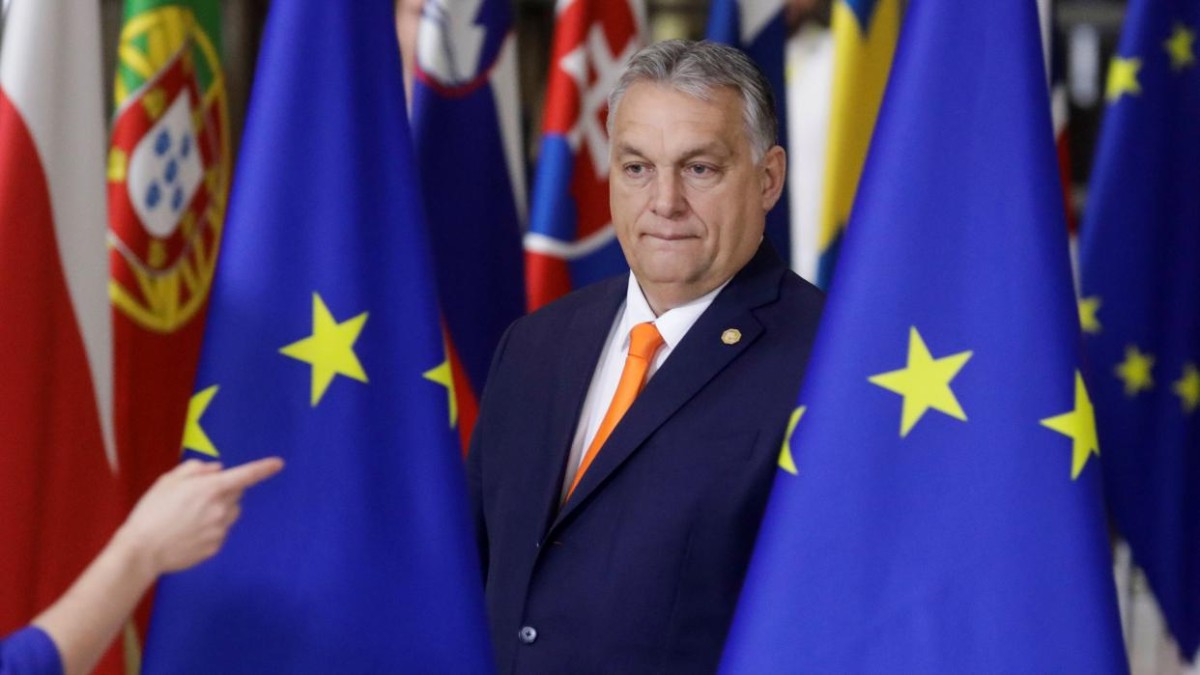 158
158
Hungary has refused to endorse the EU’s overall position on the war in Ukraine and, unlike many other EU states, has declined to provide military assistance to the battered Ukrainian army. Budapest has also expressed vehement opposition to Western sanctions against Moscow.
Mikuláš Bek, the Czech Republic’s Minister for European Affairs, said that Hungary’s approach toward Russia and the turmoil in Ukraine raise the possibility of Budapest exiting the European Union. “Negotiations in the European Union are typically arduous, and many countries might undertake conflicting strategies,” Bek added, “but I suppose that Hungary has gone a long way and has reached the chasm.”
“Today, Hungry must decide whether to return from this precipice or risk jumping over it,” Bek remarked, “and I do not wish to speculate on the repercussions of either.” Bek’s comments on Hungary’s opposition to sanctions against the Kremlin come amid a recent poll that revealed that 72% of Hungarians consider sanctions against Russia detrimental to European countries.
In a similar vein, Hungarian President Katalin Novák said in a joint press conference with her Serbian counterpart, Aleksandar Vučić, that the European Union sanctions are targeting the EU rather than Russia. Novák noted: “Hungary is a member of the European Union, so we voted in favour of the sanctions, but we have constantly emphasised that these measures are nonconstructive.”
She added: “Those who advocated the sanctions expected the sanctions to affect Russia, but this never happened.” Hungary’s Prime Minister Viktor Orbán has also announced his country won’t back the European Union’s decision to provide Ukraine €18 billion in assistance next year.
On November 18, Orbán said at a meeting in Budapest that Hungary is hesitant to put Ukraine’s interests ahead of its own, despite the fact that it opposes Russia’s military operation in Ukraine and supports the Ukrainian people. Hungary’s opposition to the EU’s proposal to help Ukraine would prevent it from being enacted since all 27 EU members must concur on it. Orbán, who has spoken out against the EU’s sanctions vis-à-vis Moscow concerning the Ukrainian imbroglio, is regarded as Putin’s most staunch ally in the EU.
Adding to the exacerbating tension between Budapest and Brussels, the European Parliament recently adopted a resolution heralding a transition in Hungary’s political structure. According to the new law, Hungary’s political system has shifted from “full democracy” to “electoral autocracy,” a hybrid form of government that presents a multi-party democracy at the local and national levels while effectively stripping elections of efficacy.
Meanwhile, Hungary’s lawmakers ratified a resolution urging the European Union Parliament’s jurisdiction over Hungary to be diminished. According to Hungarian MPs, the EU’s legislative and executive powers have effectively paralysed democracy in the union’s member states. Members of Hungary’s ruling party, led by Orbán, who voted in favour of the motion, claim that the bill would give the Hungarian parliament the authority to reject proposed instructions from the European Union. Those analysts who have meticulously examined the topic say that this controversial measure will dramatically limit the EU’s executive and legislative capacities.
According to the new Hungarian political amendments, “European democracies must break free from the political deadlocks that the European Parliament in Strasbourg has created for them.” The current structure of the EU is unable to address the challenges of the present and the future. These differences are developing since Hungary, although a member of the European Union, does not use the Euro and instead has its own independent currency known as the “Forint,” making it easier to permanently leave the EU.
Comment
Post a comment for this article